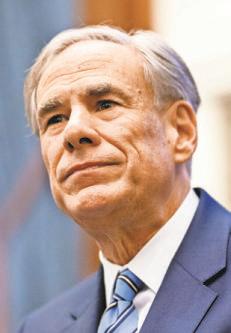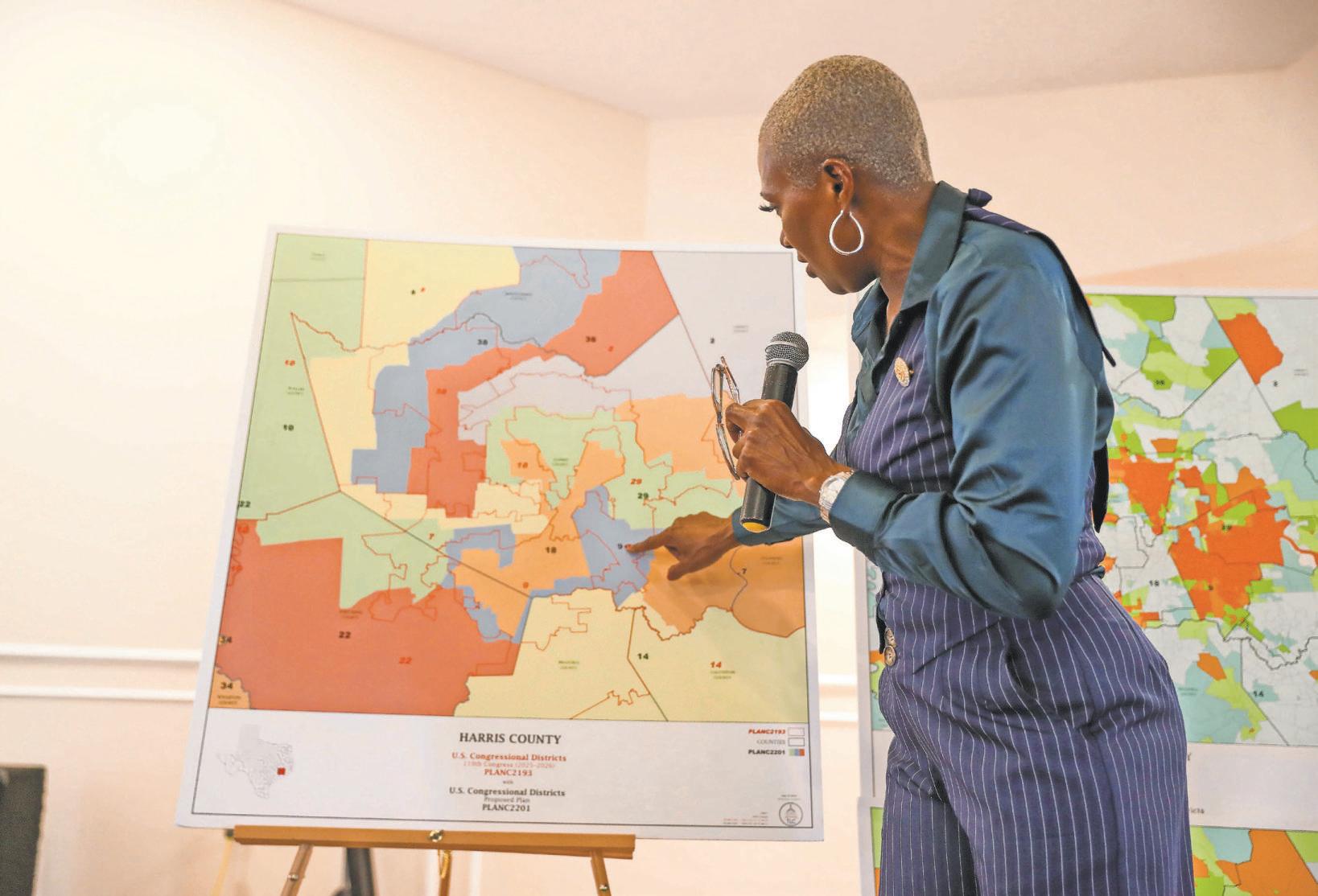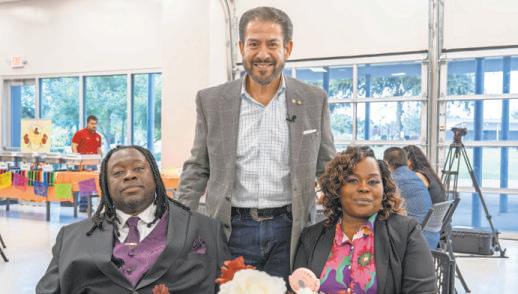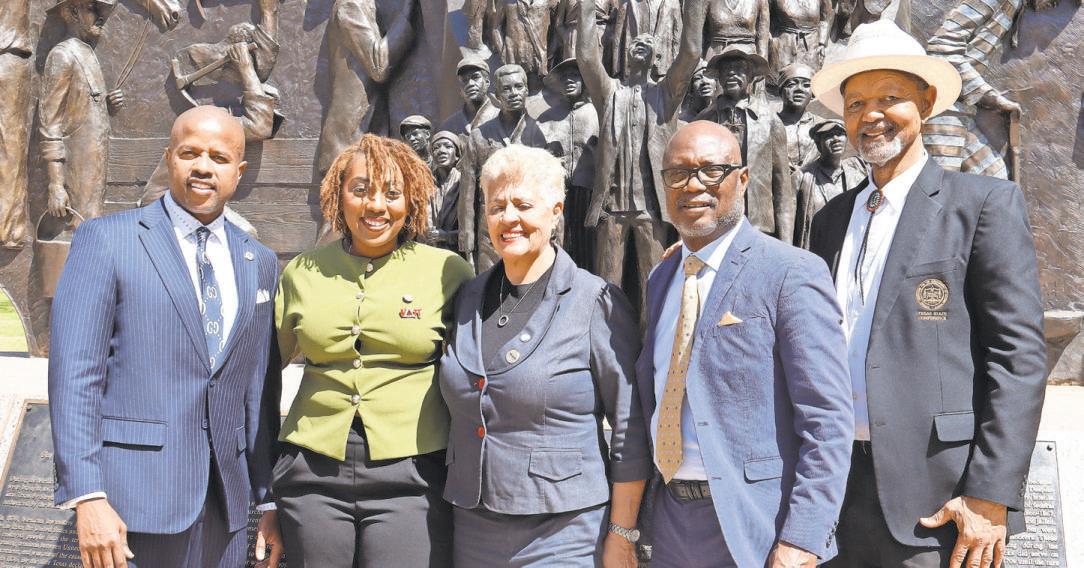
































































Texas lawmakers race against the clock on food recovery
Back in Austin for a special session, Texas lawmakers have just 30 days to tackle a growing list of urgent — and controversial — priorities, and flood recovery is front and center. The devastating July 4 floods across Central Texas have made it impossible to ignore the cracks in our emergency preparedness systems.
On the table:
• New flood warning systems
• Stronger emergency communication networks
• Hill Country disaster relief funding
• Streamlined natural disaster regulations

Lt. Gov. Dan Patrick wants new sirens installed along the Guadalupe River, arguing that cell alerts aren’t cutting it in low-lying areas. But experts caution that good intentions don’t equal good policy — and that missteps in disaster planning can cost lives. The pressure’s on for lawmakers to act fast and get it right.
As always, we’ll be watching.
How much was Breonna Taylor’s life worth?
According to the DOJ, 1 day in jail
One day. A $100 fine. That’s the punishment the U.S. Department of Justice recommended for Brett Hankison — the former Louisville police officer who fired blindly into Breonna Taylor’s apartment the night she was killed. The DOJ is arguing that Hankison’s stress from being prosecuted is punishment enough.
You read that right. The man who sprayed bullets through windows and walls — who helped lead a no-knock raid that stole a Black woman’s life — is being portrayed as a victim of trauma. Meanwhile, Breonna Taylor is still dead. Her family still buried her. And no courtroom memo can undo the violence done that night.
Thankfully, the judge was a LITTLE more empathetic, sentencing Hankison to 33 months in jail. But let’s call this for what it is: Another chapter in the long playbook of minimizing Black life while protecting blue lines.
Divine 9 Honorary classes are on fre
Let’s talk Black excellence. In the past few weeks, three powerhouse Divine Nine organizations — Alpha Kappa Alpha Sorority, Inc., Delta Sigma Theta Sorority, Inc. and Phi Beta Sigma Fraternity, Inc. — have inducted a fire list of honorary members into their ranks.
For those unfamiliar, honorary membership is the highest honor bestowed by these organizations on individuals who have made extraordinary contributions to their fields and communities, even if they didn’t pledge as collegiate members.
And this year’s lists? STACKED. Alpha Kappa Alpha tapped Olympian Gabby Thomas; former White House Press Secretary Karine Jean-Pierre; CNN anchor and analyst Laura Coates; and model Beverly Johnson.
Delta Sigma Theta inducted award-winning actresses Queen Latifah and Danielle Brooks; business mavens Fawn Weaver, Janice Bryant Howroyd and Toni Townes-Whitley; political strategist/analyst Donna Brazile; and sports trailblazers Jackie Joyner-Kersee and Swintayla “Swin” Cash.
Phi Beta Sigma welcomed Dr. Howard Fuller, civil rights activist/education reform advocate; Edward K. Archer, hiphop artist (Special Ed); Leon Robinson, acclaimed actor (The Temptations; The Five Heartbeats; How Stella Got Her Groove Back); Dr. George Koonce, former NFL player/university executive; Fred Hammond, Grammy-winning gospel musician; Dr. John K. Pierre, Chancellor of Southern University; Dave Huie, fashion entrepreneur; and Dr. DeForest Soaries, former Secretary of State for New Jersey.
It’s more than celebrity — it’s legacy. These inductees reflect the mission, values, and cultural leadership our organizations continue to uphold and we love to see it!
Welp… Southwest Airlines is back with more changes. Free bags? A distant memory. $49 fares? A fairy tale. And now... assigned seats are on the way.
Here’s what’s new: Starting July 29, if you’re flying after Jan. 27, 2026, Southwest’s rolling out a new group-based boarding system, prioritizing seat location and elite status. (A-listers and Credit Card holders will get priority)
They’re also adding fare bundles — think extra legroom, preferred seating, etc. Wanna sit up front? You’ll have to pay up. The exit row (where I ALWAYS sit) is now an extra cost. I fly Southwest because Hobby is closer to my house and I actually liked the perks. But now? There’s nothing that really sets them apart. They’re trying to attract new customers — but let’s be honest, folks who love lounges and first class aren’t switching to Southwest.
So… is this a smart move or nah? We’ll see.
By Tannistha Sinha
Gov. Greg Abbott included “a revised congressional redistricting plan in light of constitutional concerns raised by the U.S. Department of Justice” among the priorities for a special legislative session set to commence July 21.

The prompt came after a DOJ letter asserted that Texas’ current congressional map featured four majority-minority congressional districts, three in Houston (the 9th, 18th, and 29th) and one in Dallas, improperly drawn along racial lines.
While Abbott and Lt. Gov. Patrick argue the redrawing addresses DOJ-mandated legal issues, critics view it as a politically driven, mid-decade opportunity to carve out up to five additional GOP-leaning districts ahead of the 2026 midterms. State and local governments typically redraw maps each decade when new census data is released.
“Just spoke to our Great Congressmen and women of Texas,” President Donald Trump wrote on social media. “One of them sent me my Results in Texas, and even I didn’t know how well I did, but here they are — Won by one and a half million Votes, and almost 14%. Also, won all of the Border Counties along Mexico, something which has never happened before. I keep hearing about Texas “going Blue,” but it is just another Democrat LIE. With the right Candidate, Texas isn’t “going Blue” anytime soon!”
Houston’s political leaders push back
Houston Democrats have led the charge in denouncing the decision.

“If they remove one Black seat from Houston, we’re probably never going to get it back,” said State Rep. Jolanda Jones, who recently hosted a hearing for the community.
Rep. Sylvia Garcia called the special session “a brazen, racist power grab.”
“It’s pathetic and rotten to the core—a desperate attempt to ensure that they can keep the majority in the House of Representatives by force, despite Trump’s increasingly unpopular agenda for our country,” Garcia said.
Harris County
I think that we have to go and testify at the public hearings no matter how inconvenient it may be. If they remove one Black seat from Houston, we’re probably never going to get it back.”
REP. JOLANDA JONES
Attorney Christian Menefee also decried the timing and called it a deliberate attempt at gerrymandering, which involves manipulating the boundaries of an electoral constituency to favor a political party.


“They’re coming back to draw maps, not to ensure that they’re better representative of the people who live in our communities, but to further gerrymander them so that they can send more Republicans to Congress,” Menefee told the Defender. “It’s disgusting,
it’s shameful. It’s not how our democracy should run.”
“I think that we have to go and testify at the public hearings no matter how inconvenient it may be,” added Jones, who stepped down from the redistricting committee to remove any potential appearance of impropriety on her part, as she is running for the District 18 seat.
Faith leaders weigh in
Houston’s clergy swiftly mobilized in opposition.
Pastor Charles Turner of New Pleasant Grove Missionary Baptist Church in the Fifth Ward wrote a letter to Abbott calling him to protect Black and Hispanic voting power. He sent copies to his 600-strong congregation and coordinated a grassroots canvassing effort.
“These proposed changes would significantly weaken the political vote and representation of African American and Hispanic communities in our state,” Turner wrote in the letter. “I respectfully ask that you stand against any redistricting plans that would marginalize these communities and instead advocate for a transparent, equitable process that protects the rights of all Texans.”
What does it mean for Houston?
Representation is at stake. Districts like the 18th, currently vacant after the death of Rep. Sylvester Turner, could be significantly
argue this dilutes Black and and Hispanic political voice in one of the country’s most diverse voting blocs. The special session began July 21, and it remains to be seen how the Houston delegation’s political response will intensify.
Legislators consider a walkout
Democrats are exploring legislative maneuvers, including a quorum-denial walkout in Austin, to block proceedings. House Rep. Ron Reynolds said he is willing to break the quorum and take action on congressional redistricting.
Attorney General Ken Paxton has threatened fines and legal remedies to enforce quorum: Paxton even vowed to “hunt down” absent Democrats.
Redistricting Hearing
University of Houston Main Campus
Saturday, July 26 - 11am Student Center, Houston Room (220)
*The public is urged to attend!
By Tannistha Sinha
Adrian Garcia’s story begins in Houston’s Northside, where he grew up as the youngest child of Mexican immigrants. He never imagined that he would someday represent over a million people as Harris County Commissioner for Precinct 2.
Garcia attended public school but did not speak English. He recalled spending his youth in his father’s Lindale Park auto repair shop, watching him lend a hand to those in need. Tis upbringing still guides how he approaches equity in governance today.
From serving 23 years with the Houston Police Department to becoming the frst Latino sherif in Harris County, his career was shaped by struggle and service alike. In 2003, Garcia was elected to the Houston City Council, where he chaired committees on Public Safety and
Minority/Women Business Enterprise.
Today, as commissioner, he carries lessons from his upbringing, decades in law enforcement and community roots into his leadership of one of Texas’ most diverse precincts.
“It comes from being in the front seat of a patrol car, because as a young police ofcer, I would drive into neighborhoods that have been neglected,” Garcia told the Defender.
“You could look around and see that at one time these neighborhoods were thriving, but were then somewhat abandoned, possibly by city government.”
As the Harris County Sherif, Garcia tackled chronic jail overcrowding, implemented efciencies that saved over $200 million and added 200 ofcers.
Though an unsuccessful mayoral run in 2015 paused his political trajectory, he returned to public ofce as a county commissioner in 2018, serving a Latino-ma-
One of his hallmark achievements is in parks and green spaces. In 2021, Garcia’s team transformed James Driver Park in East Aldine into an inclusive park for children with disabilities.
He also launched Revive to Trive, a $50 million neighborhood revitalization program aimed at restoring long-neglected areas without displacing longtime residents. He describes it as an anti-gentrifcation strategy to protect communities rather than price them out.
“I demonstrate to them that government does work for everybody, not just the afuent,” Garcia explained.
He also secured about half a billion dollars for critical neighborhood drainage projects and oversaw cleaning 1.2 million feet of roadside ditches to reduce neighborhood fooding. Coupling infrastructure fxes with park improvements and community beautifcation, Garcia’s approach is rooted in not forgetting where he comes from.

From patrol car to policymaker, Harris County Commissioner Adrian Garcia channels decades of political experience into local leadership.
Credit: Alonzo Guadarrama/ Garcia’s office


As Texas braces for cuts to FEMA funding, Garcia has been outspoken about the risks for local governments. He co-chairs the National Association of Counties’ Intergovernmental Disaster Reform Task Force, advocating for more reliable federal support.
“Tat [FEMA cuts] is frightening because we’ve already seen that this governor wants to work against local government, strictly because of politics,” he said. “I am very concerned that Harris County may be punished for being a contemporary county. I will continue to do the things that will help my community be resilient with the resources that I have against weather events.”
Focusing “aggressively” on health, afordable housing, education and economic opportunity in Precinct 2’s underserved areas is also high on Garcia’s priority list. During his frst Commissioners Court meeting, he motioned to boost funding for the Harris County Hospital District by $5 million, addressing years of neglect in healthcare funding.
Garcia’s precinct now also ofers free SAT and ACT prep classes to help more local students get into college.
He approved Harris County’s first-ever

Harris County Commissioner Adrian Garcia’s work in Precinct 2 highlights efforts to improve infrastructure, expand opportunity and address long-standing neighborhood needs.
Credit: Alonzo Guadarrama/ Garcia’s office
Ofce of Economic Opportunity to foster a “competitive and diverse environment” in county contracting for women and minority-owned small businesses and launched the Biz2Empower accelerator program to teach small business owners how to bid for government contracts and scale up their companies. While keeping a close eye on fscal responsibility amid Harris County’s budget shortfall and political battles over taxes in recent years, Garcia says matching spending with revenue is crucial.
As a former sherif, he has been adamant about the county’s support for law enforcement without wasteful spending. Following a heated debate, the Commissioners Court recently approved a motion to increase wages for deputies ($140 million) by 2026.

By Tannistha Sinha
State data shows that teacher turnover has climbed to roughly 20% in Texas over the past two years, up from about 16% pre-pandemic.
In the 2022–2023 school year, Texas’s turnover rate hit a new high of 21.4%, an 81 % increase from 2010. Tis trend spans all K-12 school types. Charter schools, in particular, face an even heavier churn, with roughly double the teacher turnover rates of traditional public districts. While private schools are not required to report turnover publicly, many also struggle to retain talent in the face of rising competition and workloads.
These data points mirror a troubling trend across Texas: A surging teacher turnover crisis that is steeply costing schools, students and communities.
Houston’s exodus in focus
No place illustrates the problem quite like Houston ISD. Following a contentious state takeover of the district in 2023, HISD saw an exodus of educators. By the summer of 2024, roughly 4,700 of HISD’s 11,000 teachers had lef during the 2023-24 school year, or over 40% of the entire teaching force gone in one year.
June alone brought more than 2,400 teacher departures, a record number. Many educators pointed to the drastic reforms implemented by state-appointed Superintendent Mike Miles, including reassignments and a rigid new “New Education System” (NES) model, as a key reason for leaving.

Miles and his team have been blunt about their philosophy: If teachers don’t embrace the new high-pressure culture, they are free to go. Two-thirds of the teachers who quit HISD mid-year were from the stringent NES campuses.
While Miles argues this turnover will ultimately weed out low performers and elevate instruction, the immediate disruption is undeniable.
What does this teacher exodus cost?
Replacing teachers is expensive. Recruiting, hiring and training a single new teacher can cost districts tens of thousands of dollars
in staf time and resources. Research by the Learning Policy Institute fnds that large districts spend nearly $25,000 on average to replace a departing teacher when you factor in separation costs, recruiting, hiring and onboarding.
Even in smaller districts, estimates run about $9,000-$21,000 per teacher in turnover costs. Now multiply those fgures by the volume of Texas’s departures. Te recent 4 percentage-point rise in the state’s turnover rate translates to roughly 15,000 additional teachers not returning each year. By some estimates, Texas districts collectively lose hundreds of millions of dollars annually to the churn of teachers.
In Houston ISD alone, the implied price tag of replacing 4,700 teachers in one year could add up, and that is money that could have been spent on students rather than on constant rehiring and training. Tis fnancial drain hits the state level too, as Texas must invest in new teacher preparation, certifcation subsidies and emergency hiring programs to backfll the loss of experienced educators.
Te most devastating cost of teacher turnover, however, is borne by students. High turnover disrupts learning and undermines achievement. Research consistently shows that frst-year and under-prepared teachers have a less positive impact on student outcomes than veteran, certifed teachers.
Yet, Texas schools have increasingly had to rely on underqualifed staf. Over onethird of newly hired Texas teachers in 202324 were uncertifed, almost double the share from just two years prior. Tese newcomers, while ofen dedicated, are more likely to leave themselves, creating a vicious cycle.
Crucially, these harms hit hardest in already disadvantaged communities. Schools with higher poverty rates and lower performance ofen sufer the highest turnover, as seen in Houston where districts like Spring ISD, Sheldon ISD and inner-city HISD have recent turnover rates above 20%, roughly double those of more stable districts like Galena Park ISD and Pasadena ISD (12%).
By Aswad Walker
After 23 years of silence, Carol Doe Porter is speaking out to clear her name and restore the legacy of Kid Care—the nation’s first meals-on-wheels program for children.
Kid Care, founded by Carol and her late husband, Hurt Porter, once fed over 20,000 people monthly and drew international acclaim. But in 2002, accusations of financial misconduct, led by KTRK-TV (ABC13)’s Wayne Dolcefino, then-Texas Attorney General Greg Abbott and the IRS, derailed their work and lives.
Though eventually exonerated, the damage was done. Carol and Hurt lost their charity, their reputation and financial stability.
The release earlier this year of Tyler Perry’s Six Triple Eight, which tells the story of a heroic Black women’s Army unit, inspired Porter to finally speak out. The public telling of the untold history of a Black female U.S. Army unit’s heroism in the face of battlefield enemy fire and the “friendly fire” of U.S. racism resonated with Porter’s spirit.
“It reawakened old wounds,” said Porter, “but it also reminded me of our resilience.”


Before Kid Care, the Porters fed homeless people in Houston using donations from Whole Foods. But one day changed everything.
“I saw kids digging in a McDonald’s dumpster,” said Porter. “The manager said they did it every day. I just saw that as unacceptable.”
That day birthed a life’s mission.
“For five years, we fed the children and the community and nobody knew we were there. We just did it on our own,” recalled Porter.

Renowned chef Wayne Webb joined Kid Care, coordinating meals, and, with the work of Porter’s son, Hurt Porter III, growing operations to serve 23,000 meals monthly.
“It was all about impacting the community,” Webb said.
Webb’s vision included training the homeless and opening a restaurant.
“We were very fortunate to get Wayne. Kid Care’s dreams became his,” said Porter.
National and international acclaim
Kid Care’s work was recognized globally. Carol was named “Mother of Them All” by People Magazine and “Person of the Week” by Peter Jennings. The couple earned more than 200 awards, including an Essence Award and recognition from President George H.W. Bush.
She led a U.N. workshop on child hunger and spoke at the prestigious Million Dollar Roundtable in 2002, receiving invitations from over 40 countries to give future presentations.
“I could’ve spent the rest of my life raising money and starting Meals on Wheels programs for kids globally,” Carol said.
They even caught the attention of Bishop Desmond Tutu: “We need your program in all of Africa,” Tutu told her during a meeting in the early 2000s when Kid Care sponsored Tutu’s Houston visit.
Allegations
the model wasn’t sustainable, saying, “We have got to devise a method to teach these people to fish, or we’re gonna have second and third-generation care recipients.”
citywide visibility. Media support snowballed with national coverage: the Los Angeles Times, the New York Times, and even Oprah
Service expansion
But those dreams collapsed when Dolcefino aired over 40 investigative reports accusing the Porters of lavish spending and theft. Abbott sued them, shut down Kid Care and the IRS claimed they owed $550,000.
An investigator called their issues “typical of non-profits.” Abbott’s lead investigator even stated there was no evidence of intentional fraud.
Yet few knew KTRK aired a retraction or that Abbott dropped the suit in 2004. Their public exoneration never matched the intensity of their public condemnation.
“Despite the slanderous media onslaught, the evidence and facts proved their innocence,” said family friend Dr. Abdul Haleem Muhammad. “Justice demands their good names and reputation be restored.
“Justice also demands that those who are responsible for unjustifiably destroying their life’s work, thereby causing childhood hunger to perpetuate in Houston and beyond, must be punished by God’s hand in this world and the Hereafter if those parties refuse to repent.”
The fallout left lasting scars.
“My husband was never the same after that,” said Carol. “He couldn’t protect me.”
She was ostracized—even by members of her church. Still, she remembers the encouragement from friend and owner of the Jewish Herald-Voice, the late Joseph Samuels: “Don’t stop fighting. The truth will come out.”
David Goldberg, former KHOU news director, attended Hurt’s 2024 funeral. There, he spoke with Kid Care’s accountant: “They never talked to me. I’ll never understand it.”
“They were gonna do a medical clinic, a dental clinic, an eye exam clinic,” said Uhl. “Carol was the first person I heard suggest clinics in drug stores. Now that’s everywhere.”

Carol wants an apology from Abbott and Dolcefino—though she doesn’t expect one. What she really wants is to rebuild Kid Care, which is still a 501(c)3 that Carol controls.
“I’ve been quiet for 23 years. We were wounded. Our monies were taken. I was denied a livelihood. We lived on Social Security and miracles—and we still help people.”
She continues feeding those in need, supported by Whole Foods, and wants to see a Kid Care rebirth.



Kid Care began with home-cooked meals delivered from a beat-up Datsun. Hurt warned
Kid Care caught the public’s attention when KHOU reporter Norm Uhl covered their story.
“When we pulled up, all these kids came out yelling, ‘Carol! Carol!’” Uhl recalled. “They were feeding kids every night.”
Levy of
and
As support grew, so did the program.
The Porters expanded from one apartment complex to several, added a preschool and summer camp, and even led children on trips to Washington D.C. Carol recalled taking youth who had never left their neighborhoods to meet Congress members.
Her husband focused on mentoring boys.
“Integrity, honor—that’s the only way you can be successful,” he’d preach.
“I was accused of stealing $1.6 million,” Carol said. “We were destroyed. Literally, the money dried up.”
One charge stemmed from a Kid Care credit card used at a strip club—later traced to a rogue employee. Still, the damage was done.
Silent exoneration
Eventually, the Porters were cleared— found guilty only of poor record-keeping.
Today, many still believe the narrative that aired repeatedly on ABC13. Were the Porters imperfect? Possibly. Could Kid Care have used a tighter structure and better oversight? Absolutely. But the public never heard that a 2000 study by Dini Partners described Kid Care as “a high-performing not-for-profit.”
“I’m willing to share Kid Care’s meals-onwheels guidelines with anyone who wants to run one,” said Carol. “It’s my hope that we can create a national meals-on-wheels program because kids are still hungry.”
She says those interested should write to Carol Porter / Kid Care Inc. at PO Box 10307, Houston TX 77206-0307 or email KidCareInc@gmail.com.
“It’s not too late to feed the children. The government can’t do it all. We have a responsibility.”
By Aswad Walker
For the past three years, the University of Houston’s African American Studies (AAS) Department has held the Emerge Leadership Academy, which gives high school students a deep dive into college life and Black history, while equipping them for success today.
But the real magic of ELA is that participants emerge from the two-week intensive program empowered for future success.
“[ELA] is our way of exposing students to a college life through academic rigor and cultural experiences,” said Dr. Tara Green, chair of UH’s AAS Department.
Green taught the ELA’s “Introduction to African American Studies” course.
“Participants learned about leaders from early explorers into more contemporary times, and then they also focused on arts projects, as well as math and their writing skills.” Added Green. “It gives them a leg up on getting into college, which is very important at this time because we do want them to go and get a college

degree, because we know that that will help them and their families in the long run.”
ELA is designed to provide rising high school juniors and seniors with leadership skills essential to their academic or professional endeavors, though sometimes students younger than the target demographic are admitted.
Take Sean Myers, for instance, who will be a freshman at Houston ISD’s Lamar High School this fall.
Myers shared how ELA set him up for future success.
“The biggest impact this program had on me was helping me to find my voice and the importance of not letting anyone take that from you because you only have one voice, and you need to learn how to use it,” said Myers, sounding wise beyond his years.
How the program uses Black history.


An application has been made with the Texas Alcoholic Beverage Commission for a Mixed Beverage Permit, food and Beverage Certificate, and Late-Hour Permit by Haus of Margaritaz LLC, dba Haus of Margaritaz, to be located at 2533-B Southmore Blvd, Houston, Harris County, Texas. Officer of said corporation Katrina Richardson, managing member.






HCTRA is doing more for mobility in our region - from toll roads to a new Ship Channel Bridge.








The Metropolitan Transit Authority of Harris County, Texas (METRO) is planning to issue the procurement documents listed in this advertisement.


IFB No. Doc1637289712: Kashmere and Northwest Storage Tank Replacement. Solicitation will be available on or about 07/22/2025. Prospective bidders/proposers can view and download these solicitations by visiting METRO's website at ridemetro.org/Open Procurements. If you are unable to download the documents or are having difficulty, please contact 713-739-6125 or email Contracts/ Property Services at propertyservices@ridemetro.org.




Notice is hereby given that original Letters Testamentary for the Estate of Peggy Pollard, Deceased, were issued on June 27, 2025, under Docket No. 520456, pending in the Probate 2 Court of Harris County, Texas, to Deramus Joe.
Claims may be presented as follows: Representative, Estate of Peggy Pollard, Deceased c/o Crayton Law PLLC 1708 Spring Green Blvd. Suite 120-371 Katy, Texas 77494
All persons having claims against this estate, which is currently being administered, are required to present them within the time and in the manner prescribed by law.
DATED July 18, 2024.
Toshiba Crayton Crayton Law PLLC Attorney for Applicant
By Laura Onyeneho
Shevann Steuben made history at 26 years old as the youngest person to serve as the first Vice President of the NAACP Houston chapter.
But if you ask her, this moment isn’t about a title—it’s about continuing the work she’s been doing since she was a teenager: Holding power accountable and creating space for those who often go unheard.
“I’ve always believed that activism starts with asking the hard questions,” Steuben said. “Even if you’re the youngest person in the room.”
Before stepping into her leadership role with the NAACP Houston, Steuben’s journey began in San Francisco, where she was raised in a culturally rich but socially unequal environment. In high school, she started noticing the disconnect between how institutions discussed diversity and how they practiced it.
Her private school had all the correct language on paper, but the implementation of inclusivity fell on the students. That’s when Steuben first learned the power of organizing and demanding change.
“One of the biggest proponents of my journey has been the first-generation college student,” she says, acknowledging the support she received from programs like First Graduate, which “followed me from the age of 11 until I graduated from college.” She recalls her first leadership award at age 11, saying, “I really just think they were trying to call me bossy.”
That passion followed her to Baylor University (Class ‘20), where she quickly realized how wealth and privilege shaped campus culture. She didn’t shy away—instead, she leaned in, joining the Baylor chapter of the NAACP and immediately setting her sights on becoming its president.

“I tell people I chose Baylor by accident,” she admits. “I was actually a track and field recruit. And I tore my ACL on my meniscus when I was 17. And my world kind of came

crashing down.”
Despite her initial plan to be a “regular student,” Steuben’s innate leadership skills quickly surfaced.
“For the first month, I was already in the leadership position,” she says. “I remember sitting in my very first NAACP meeting and thinking, ‘I’m going to lead this chapter one day.’”
And she did—serving not one, but two terms as chapter president during her junior and senior years. But the path to leadership wasn’t handed to her. She became Political Action Chair in her sophomore year and began organizing her first solo event, most notably, a powerful Police Brutality Live Museum that made waves on campus.
That same year, she attended a formal dinner with Baylor’s Board of Regents, seated next to top university decision-makers. Rather than stay silent, Steuben posed a bold question: “Why must Baylor students identify as Christian to be Line Camp leaders and student leaders?” The table went quiet, but Steuben stood firm.
“If I were going to get this education,” she said, “I was going to use it to challenge the system and advocate for students who felt pushed to the margins.”
Her activism soon expanded beyond campus. By her junior year, Steuben was appointed Treasurer of the Texas NAACP Youth and College Division for two terms, while still leading Baylor’s chapter. In 2019, she was elected president of the state division, amplifying her reach and becoming a force in statewide advocacy.
Now, as the first Vice President of the NAACP Houston Branch and a member of the National NAACP Board of Directors, Steuben is using every platform available to uplift Black communities. Her core issues, voting rights, redistricting, criminal justice reform and COVID-19 equity are grounded in personal experience.
“How do we get more young folks? We know that from I would say 20 to 40, there’s a huge gap when it comes to politics, policy, advocacy, organizing, whatever word folks prefer to use,” she says. “I tell people all the time, everybody belongs in this space because everything political is personal.”
Claude Cummings, a mentor and former 1st Vice President of the NAACP Houston Chapter, has played a crucial role in shaping her leadership journey.
“Over the years, I watched how she handled the young adult committee for the NAACP,” he says. “Whenever she was given some direction, she was one to volunteer and then also just do great work.”
Cummings says her passion is not so much about being in a leadership position as making sure that those she led are held to a good standard for the organization, not just herself.
“She’s very knowledgeable about the issues we’re having today,” Cummings said. “Whenever I have an opportunity to bring her on my radio show here in Houston, she makes herself available to come in and talk to those in her age group about the importance of being involved.”
Learn more about her impact from mentors in the community.


By Terrance Harris
Afer a couple of years of overhauling and rebuilding the roster, the Texans targeted specifc roster needs this ofseason through free agency and the NFL Draf.
Tat meant fnding capable bodies to fll in holes along the ofensive line, fnding players to address major losses in the receiver corps and then adding some much-needed depth in a secondary that was already among the best in the league. Now that the Texans feel

they’ve done all of that, it’s about putting it all together as DeMeco Ryans and his staf get set to head into their third training camp to break through the glass ceiling that has been the second round of the playofs.
“With our roster, where we are now, I feel really strong about our roster,” Ryans said. “I always take into account, every year, every player that’s on our team.”
With a defense that should prove to be among the best in the NFL this season and a quarterback in C.J. Stroud, considered among the best young signal-callers, the Texans head into training camp this week with major expectations for the 2025 season.
Here are fve things to watch for this training camp.
Will C.J. Stroud bounce back from a rough sophomore campaign?
Afer a brilliant rookie season, quarterback C.J. Stroud seemed to take a step backward in his second season. Some of the reasons were out of his control, such as an out-of-synch ofensive line that allowed him to be sacked 52 times and a wide receiver corps decimated by season-ending injuries to Tank Dell and Stefon Diggs. But Stroud also had issues with accuracy, decision-making and holding the football too long. But he is back for his third season, better prepared and with a new ofensive attack under new ofensive coordinator Nick Caley, who came over from the Los Angeles Rams in the ofseason.
How much has the offensive line improved?
Te biggest eyesore for the Texans last season was the ofensive line, where the unit was besieged with holding and ofside penalties
and busted assignments, which led to C.J. Stroud being the second-most sacked quarterback in the league. Te Texans parted ways with veterans Laremy Tunsil and Shaq Mason, hoping this will be an addition by subtraction. Tree of the fve starters return, and they have added veterans Trent Brown, Cam Robinson, Laken Tomlinson and Ed Ingram. Robinson, who signed a one-year, $12 million deal to replace Tunsil and protect Stroud’s blindside, might be serviceable if healthy this season until second-round pick Aireontae Ersery is ready.
Which of the rookies has a chance to make an immediate impact?
DETAILS
What: Seven free training camp practices are free: July 23, July 26, July 28, July 29, July 30, Aug. 1, Aug 2 and Aug. 14
Tis was the third NFL Draf for general manager Nick Caserio and DeMeco Ryans, and while they didn’t come away with C.J. Stroud or Will Anderson Jr., they came out of the 2025 draf addressing some real needs. Look for cornerback Jaylin Smith and maybe even Jaylen Reed to come in and immediately add to the depth in the secondary. Iowa State receiver Jayden Higgins, who is 6-foot-4 and runs a 4.47 in the 40-yard dash, could replace Tank Dell as the Texans’ speed receiver and complement Nicco Collins perfectly.
acquisitions was the late addition of Browns’ running back Nick Chubb, right before minicamp in June. Chubb isn’t quite at the level before his serious knee injury two years ago, but the perennial Pro Bowl running back still has plenty lef in the tank and is expected to back up Joe Mixon this season. Te two former AFC North running backs could form a formidable one-two punch in the backfield this season. Chubb has some injury concerns, but coming into a situation like the Texans, where he will be expected to carry much less of the load, could extend his career and beneft the Texans and Mixon.
Where: Houston Methodist Training Center
When: Start time: 9 a.m.
How to obtain tickets: Ticketmaster.com
What kind of one-two punch can Nick Chubb and Joe Mixon bring?
The biggest surprise of the offseason
Which of the newcomer wide receivers will make the greatest impact?
This camp will pay much attention to the wide receiver corps, which only returns one proven player in Nicco Collins. Te remainder of the group are guys with potential. During the ofseason, the Texans attempted to give C.J. Stroud some more targets with the additions of Justin Watson and Braxton Berrios, and they traded for Christian Kirk. Also in the mix will be Xavier Hutchinson and John Metchie, who will compete with Watson and Berrios for a roster spot. However, drafed Iowa State rookies Jayden Higgins and Jaylin Noel will receive most of the attention and have a chance to make an impact in the receiving corps.
By Jimmie Aggison
At Aldine High School, Jameson Kegler didn’t just rise above the competition—he redefined what success looks like.
Graduating in the top 2% of his class while excelling on the basketball court, Kegler recently added another prestigious accolade to his résumé: An invitation to the National Academy of Future Physicians in Boston. His journey is a powerful reminder that students don’t have to choose between books and basketball—when purpose meets discipline, greatness has no limits.
Kegler’s academic strategy was simple: Start strong and stay focused. That mindset helped him enter high school with eight credits earned during seventh and eighth grade. Once at Aldine, he maintained the same focus, eventually graduating with 24 college credits.
“Having a goal of making all A’s pushed me to perform my best in all classes,” said Kegler.
Like most teenagers, Kegler experienced moments of overwhelm, but self-reflection and a clear focus on his goals kept him grounded.
“When academics and sports started to feel like too much, I would step back and reflect on what I wanted to accomplish,” said Kegler. “Then I’d attack each goal bit by bit so that the pressure didn’t become overwhelming.”
While Kegler described his pharmacy class as his most rigorous, he found comfort in English class, where he could express his passion for reading and writing.
“Writing gives me the opportunity to express myself and reading takes me to places I’ve never been,” said Kegler.
As a team captain for the Aldine Mustangs during the 2024–2025 basketball season, Kegler was constantly balancing a demanding athletic schedule with his academic responsibilities.
“Being one of the captains helped me expand my leadership skills,” said Kegler. “Basketball has always been a focal point in my life—it’s taken me from California to North Carolina, playing in front of different coaches and adapting to different play styles. It’s helped me grow up and mature as I’ve had to step up in big moments for my team.”
This leadership carried over into the classroom, where his teammates often looked to him as an example.
“Sometimes games during the week meant getting home late, barely sleeping and still having a test the next day,” said Kegler. “I’d just
take my time, think about what I learned in class and do my best—because I had no other choice. Being a student-athlete was something I signed up for, so I had to give my all.”
Kegler’s commitment was on full display after missing practice to attend interviews for the Posse Scholarship. He bounced back with a 31-point performance against Spring High School, including a season-high eight three-pointers.
His hard work paid off. The National High School Coaches Association (NHSCA) named Kegler an Aca demic All-American and he earned a basketball scholarship to Iowa Lakes Community College.
But perhaps the biggest honor came in June, when Kegler was nominated to attend the National Acad emy of Future Physicians in Boston, Massachusetts—a gathering of elite academic minds from across the country.
“It felt great knowing I was among an elite group of students focused on academics,” said Kegler. “Knowing I would learn from some of the greatest minds and take that knowledge with me on my journey to becoming an orthodontist or oral surgeon felt amazing.”

Basketball has shaped Kegler’s leadership and resilience, just as his passion for dentistry is shaping his future.
and motivational figures like LeBron James, David Goggins and Eric Thomas as key influences.
Reflecting on the experience, Kegler said, “The most inspiring moment was being in rare air with Nobel Prize winners and CEOs— it gave me the sense that I truly belong. This showed me that my goals are attainable and within reach.”
“When people hear my son has already earned 24 college credits, they wonder why he’s not at a four-year university,” said Jonathan Kegler, Jameson’s dad. “But he’s never been one to follow the script—he’s writing his own. Choosing Iowa Lakes Community College wasn’t about taking the easy route; it was about giving himself the space to grow, stay on track academically and keep playing the game he loves.”
“He’s not built to follow lanes—he’s built to create them, whether it’s on the court or in the clinic, changing lives one smile at a time,” said Jonathan.
ABOUT JAMESON KEGLER
Class: 2025
IG: @jamesonkegler
Twitter: @jamesonkegler
Position: Point Guard
Height & weight: 6-feet, 180 pounds
Favorite artist: Lil Poppa
Status: Committed to Iowa Lakes Community College
Favorite subject: English
Shout-outs: Jonathan & Tangela Kegler
To other student-athletes, Kegler offers this advice: Find balance and embrace discomfort.
“It will be a challenge to balance high-level academics and sports,” said Kegler. “It’s never easy to be great at either, but if you give proper focus to both, your rewards—whether academic admissions or athletic scholarships—will grow tremendously. Join clubs, network and be a leader.”
Kegler credits his parents, grandparents
“My parents are educators and always emphasized academics,” said Kegler. “I’ve learned a lot from them, but especially work ethic. They work hard to provide for others and carry themselves with purpose in every setting.”
Looking ahead, Kegler hopes to be either practicing dentistry or playing professional basketball within the next 10 years.
“I believe the future is unpredictable— anything can happen because it’s in God’s plan,” said Kegler.
Above all, Kegler wants his story to serve as motivation for others navigating the path of academics and athletics.
“I hope my story shows kids that being a student-athlete is possible if you set your mind to it,” said Kegler. “Getting Academic and Athletic All-District, All-State Academic Team and Academic All-American honors wasn’t easy, but it was worth it. You’re not just an athlete. You can use academics to impact the world in another way.”
“No matter how much you’ve done,” said Kegler, “there’s always another gear and level within reach.”




























